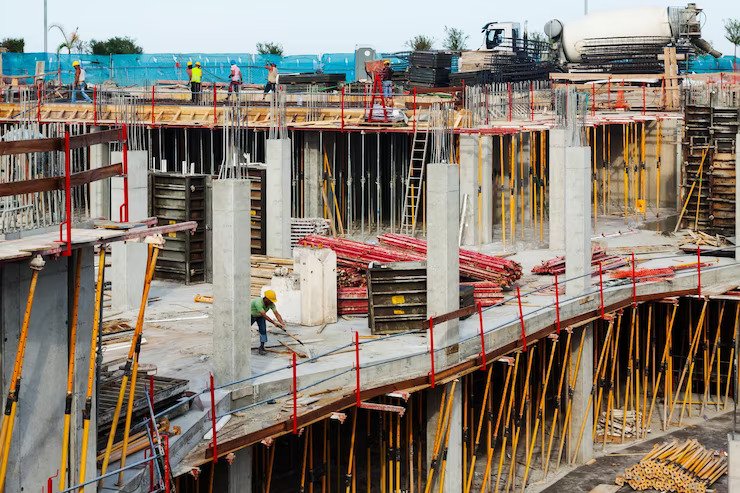Why Construction Estimating is Important in the Construction Industry
- 1 Introduction: The Importance of Construction Estimating
- 1.1 Ensuring Cost Control and Budget Management
- 1.2 Facilitating Project Planning and Scheduling
- 1.3 Supporting Decision Making and Risk Management
- 1.4 Enhancing Bid Preparation and Contract Negotiation
- 1.5 Promoting Transparency and Stakeholder Communication
- 1.6 Ensuring Resource Allocation and Procurement Efficiency
- 1.7 Improving Project Profitability and Return on Investment
- 1.8 Ensuring Compliance with Regulatory Requirements
- 1.9 Conclusion
- 1.10 FAQs (Frequently Asked Questions)
- 1.10.1 Q: How does construction estimating impact project timelines?
- 1.10.2 Q: What role does construction estimating play in risk management?
- 1.10.3 Q: How does construction estimating support contract negotiation?
- 1.10.4 Q: Can construction estimating improve project profitability?
- 1.10.5 Q: How does construction estimating ensure compliance with regulations?
In the world of construction, accurate and reliable cost estimation plays a crucial role in ensuring the success of projects. estimating services involve calculating the costs involved in various aspects of a construction project, such as labor, materials, equipment, and overhead expenses. This process helps stakeholders make informed decisions, manage budgets effectively, and deliver projects within the allocated resources. In this article, we will explore why construction estimating is vital in the construction industry and its significance in ensuring project success.
Introduction: The Importance of Construction Estimating
Construction estimating services as the foundation for every construction project. It involves a systematic approach to determining the costs associated with various project components, allowing stakeholders to plan, execute, and manage projects effectively. By estimating costs accurately, construction professionals can make informed decisions, mitigate risks, and ensure the project’s financial viability.
Ensuring Cost Control and Budget Management
Accurate estimating enables stakeholders to establish a realistic budget for the project. By considering all the relevant factors, such as labor, materials, equipment, and overhead expenses, construction professionals can estimate the costs involved in each phase of the project. This information helps in controlling costs, avoiding budget overruns, and ensuring that resources are allocated efficiently.
Facilitating Project Planning and Scheduling
Construction estimating is essential for project planning and scheduling. By accurately estimating the time and costs associated with different activities, construction professionals can create realistic project timelines. This allows for effective resource allocation, coordination of tasks, and timely completion of the project. estimating also helps in identifying potential bottlenecks and optimizing the project schedule.
Supporting Decision Making and Risk Management
Estimating provides valuable insights for decision-making and risk management. In the USA most houses are designed and built with different materials that take different costs. We write a blog on how to estimate construction cost for a new house. By considering the Construction costs and resources required for different project options, stakeholders can evaluate the feasibility and profitability of each alternative. Additionally, accurate estimating helps in identifying potential risks and uncertainties associated with the project. This enables stakeholders to develop contingency plans and mitigate risks effectively.
Enhancing Bid Preparation and Contract Negotiation
For contractors and construction firms, accurate estimating is crucial during the bid preparation and contract negotiation process. By estimating costs accurately, contractors can develop competitive and realistic bids that align with the project requirements. Construction estimating also helps in negotiating contracts by providing a clear understanding of the costs involved, ensuring fair and profitable agreements for all parties involved.
Promoting Transparency and Stakeholder Communication
Construction estimating promotes transparency and effective communication among project stakeholders. By providing detailed cost breakdowns and estimates, construction professionals can foster trust and open communication with clients, subcontractors, and suppliers. Transparent estimating practices also help in resolving disputes, managing expectations, and building long-term relationships in the construction industry.
Ensuring Resource Allocation and Procurement Efficiency
Accurate construction estimating is essential for efficient resource allocation and procurement. By estimating the quantities and costs of materials, equipment, and labor, construction professionals can plan their procurement strategies effectively. This ensures the availability of resources when needed, minimizes delays, and optimizes project productivity.
Improving Project Profitability and Return on Investment
Construction estimating directly impacts project profitability and return on investment. By estimating costs accurately, construction professionals can identify potential cost-saving opportunities and optimize project resources. Effective cost control and budget management contribute to higher profit margins and better returns on investment for construction projects.
Ensuring Compliance with Regulatory Requirements
Construction estimating plays a crucial role in ensuring compliance with regulatory requirements. By accurately estimating the costs of safety measures, environmental protections, and other regulatory obligations, construction professionals can incorporate them into the project budget. This helps in avoiding penalties, legal issues, and delays caused by non-compliance.
Conclusion
Construction estimating is a vital aspect of the construction industry. It provides stakeholders with valuable insights into project costs, resource allocation, and risk management. Accurate estimating enables effective decision-making, ensures cost control, and enhances project profitability. By embracing robust estimating practices, professionals in the industry can deliver successful projects that meet client expectations, comply with regulations, and achieve long-term success.
FAQs (Frequently Asked Questions)
Q: How does construction estimating impact project timelines?
Accurate construction estimating allows for realistic project planning and scheduling. By estimating the time required for each activity, stakeholders can create project timelines that align with available resources and optimize project efficiency.
Q: What role does construction estimating play in risk management?
Construction estimating helps identify potential risks and uncertainties associated with the project. By estimating costs and resources accurately, stakeholders can develop contingency plans and mitigate risks effectively.
Q: How does construction estimating support contract negotiation?
Accurate construction estimating provides a clear understanding of the costs involved in a project. This helps contractors negotiate contracts that are fair, profitable, and align with the project requirements.
Q: Can construction estimating improve project profitability?
Yes, construction estimating directly impacts project profitability. Accurate estimating allows for cost-saving opportunities, effective resource allocation, and better budget management, resulting in higher profit margins.
Q: How does construction estimating ensure compliance with regulations?
Construction estimating helps incorporate the costs of safety measures, environmental protections, and other regulatory requirements into the project budget. This ensures compliance and helps avoid penalties and legal issues.


















